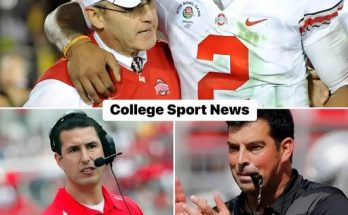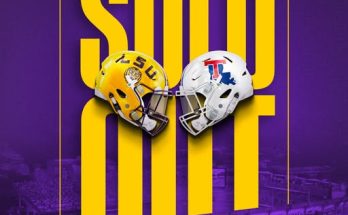Cooper Flagg’s journey to the pinnacle of basketball lore began long before the NBA Draft spotlight cast its unforgiving glow on him. Yet when the Commissioner stepped to the podium and called his name as the No. 1 overall pick, it wasn’t just a coronation—it was an affirmation of years of obsession, grit, and singular talent. But the aftermath of that moment diverged sharply from the classic tale we’ve come to expect from top picks. Instead of joining a struggling franchise desperate for a savior, Flagg found himself in a unique situation: stepping into a team already built for deep playoff runs, with All-Stars, structure, and expectation. For the 18-year-old phenom, this wasn’t a burden—it was, in his words, “a blessing.”
In the modern NBA, being the No. 1 overall pick usually comes with the implied role of franchise savior. These players are handed the keys to a broken kingdom, asked to rebuild a shattered culture, inspire hope, and shoulder the dreams of millions almost immediately. LeBron James, Anthony Davis, Zion Williamson—all arrived amid fanfare to teams gasping for relevance. Yet for Flagg, the dynamic flipped. He landed with a playoff-caliber roster flush with veteran leadership, a defined identity, and established stars who welcomed him not as a messiah, but as an integral piece of a championship puzzle. It’s rare air, to be sure, and Flagg recognizes its value.
“This gives me room to grow without having to carry everything from day one,” Flagg told reporters on draft night. “I get to learn from some of the best in the world and contribute to winning basketball right away.”
For a player like Flagg—whose basketball instincts border on supernatural—this environment may be the perfect incubator. Known for his elite defensive acumen, advanced feel for the game, and unselfish style, he thrives in systems where purpose overrides ego. His skill set doesn’t demand 30 shots a night or a heliocentric offense. He reads the game at a veteran’s pace, finds gaps others miss, rotates on defense like he’s reading tomorrow’s playbook, and elevates teammates with timely decisions. Plugging him into a mature locker room may accelerate his development exponentially, not just in terms of impact, but in cultivating habits that sustain greatness over a decade.
And yet, while Flagg might avoid the early chaos that has consumed many No. 1 picks before him, his path will not be without pressure. If anything, the stakes are higher in a contending environment. Every possession matters more. Mistakes are magnified. Winning isn’t just a goal—it’s the expectation. In some ways, it’s more difficult to blend into a roster that already functions at a high level. There’s less patience for growing pains and little tolerance for missteps. But Flagg seems uniquely wired to handle it. His mental approach to the game is mature beyond his years, and he welcomes accountability with disarming calmness.
What separates Flagg is not just talent, but temperament. At Monteverde Academy, where he faced the best high school talent in the country, Flagg didn’t just dominate—he elevated those around him. Coaches raved about his coachability, his attention to detail, and his hunger to be challenged. He sought out tough matchups, wanted to guard the best player, and never chased stats. Those qualities made him beloved by teammates and deeply respected by opponents. That same humility is why veteran stars on his new team have already embraced him.
“There’s nothing forced with Cooper,” one assistant coach remarked during summer workouts. “He doesn’t try to prove he’s the man—he just plays the right way. And that’s infectious.”
Flagg’s arrival on a non-rebuilding team also offers broader implications for how teams view development. The old model often involved isolating young talent, feeding them usage, and hoping they learn through volume. But Flagg’s situation offers a different case study: surround a gifted young player with excellence, let him grow under winning conditions, and accelerate his readiness by osmosis. It’s a model more common in international clubs or dynastic organizations like the Spurs during Tim Duncan’s early years. In this respect, Flagg isn’t just part of a new trend—he may help redefine it.
Of course, this transition won’t be frictionless. NBA speed, physicality, and the nightly grind are a steep learning curve for even the most prepared prospects. Flagg will have to adjust to playing fewer minutes at times, ceding spotlight to established scorers, and thriving in roles that shift based on game flow. But his adaptability is already evident. In Summer League action, he’s shown a rare ability to affect games without needing the ball—blocking shots, deflecting passes, sprinting the floor, setting smart screens, and making connective passes that keep possessions alive.
There’s a certain grace to how Flagg plays that belies his age. He doesn’t force the game. He doesn’t chase the highlight. He’s the kind of player who’ll take a charge in the first quarter of a July scrimmage because it’s the right read. That kind of discipline, that level of care—it translates. Coaches love it. Veterans respect it. And fans, even if they don’t always see it in box scores, feel it.
But behind that maturity lies a fire that burns hot. Flagg is not content to be a passenger, even on a winning ship. He wants greatness. He studies tape obsessively, rewatches possessions he messed up, and texts coaches for feedback late at night. This balance—between deference and determination—is the rarest of athletic traits. It means he can lead without overtaking, shine without suffocating others. It’s why he’s not just projected to be great, but to be the connective tissue of a championship core.
There’s also something deeper at play here—a shift in how we define basketball stardom. For decades, stardom was synonymous with domination. You had to score, to dunk, to headline. But Flagg represents a return to the holistic. His superstardom lies in subtlety: a deflection that triggers a fast break, a backdoor dime that nobody saw coming, a switch on defense that prevents a mismatch. His presence isn’t always loud, but it’s always felt.
In many ways, Flagg is a player built for the modern NBA. The league has evolved into a chess match of versatility, spacing, and defensive adaptability. Gone are the days of static roles and rigid archetypes. What matters now is fluidity—can you guard multiple positions? Can you make the next pass? Can you anticipate two plays ahead? Flagg does all of that instinctively. And when you combine that with his size, athleticism, and motor, it’s not hyperbole to say he could soon be one of the most complete players in the league.
His upbringing contributes to that groundedness. Hailing from Newport, Maine, Flagg was never consumed by big-market hype or AAU drama. He grew up in a small town where basketball was community, not industry. That humility hasn’t left him, despite the explosion of national attention. He still deflects praise, credits teammates, and approaches each game like a student of the craft. It’s not just refreshing—it’s foundational.
When asked recently about the challenge of fitting in on a veteran squad, Flagg didn’t blink. “I’m here to help win. However that looks—whether it’s diving on the floor, hitting open shots, or just bringing energy—I’m ready for it.” That mindset, combined with his talent, makes him the rarest kind of No. 1 pick: a superstar who doesn’t need to be treated like one to perform like one.
Flagg’s career is still in its embryonic stage, but the framework is already historic. No one doubts the stats will come. The points, the accolades, the All-Star nods—they’re inevitable. But what’s more intriguing is the legacy he might carve out through impact, not indulgence. If Flagg becomes the best player on a championship team—not by dominating the ball, but by mastering the margins—he may usher in a new era of what greatness looks like.
The league has seen its share of transcendent talents, but Flagg’s arrival feels like something more: the return of a certain purity to the game. A reminder that basketball is, at its best, a team sport elevated by the smartest player on the floor. And while he may not be the loudest, the flashiest, or even the statistical leader right away, Cooper Flagg might be exactly what the modern game has been waiting for.
A blessing, indeed—not just for him, but for basketball itself.



